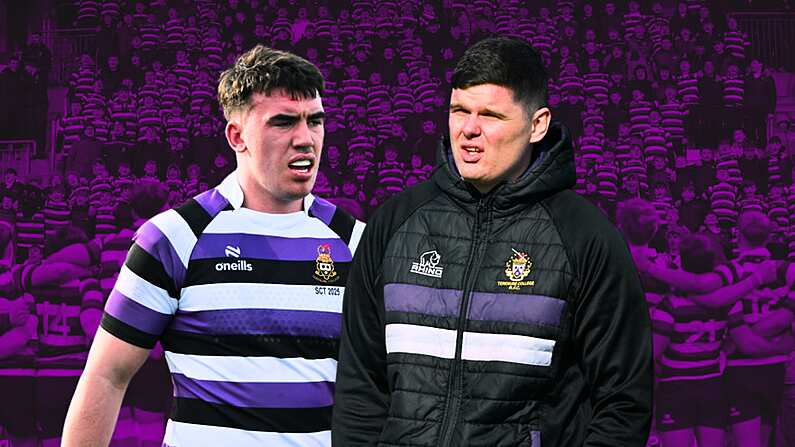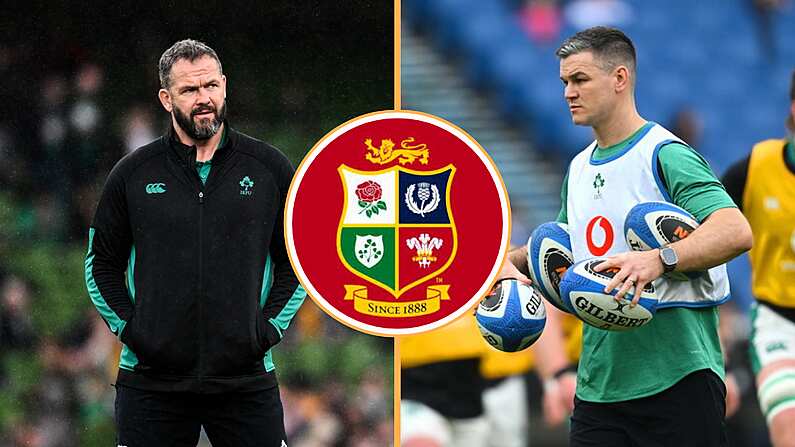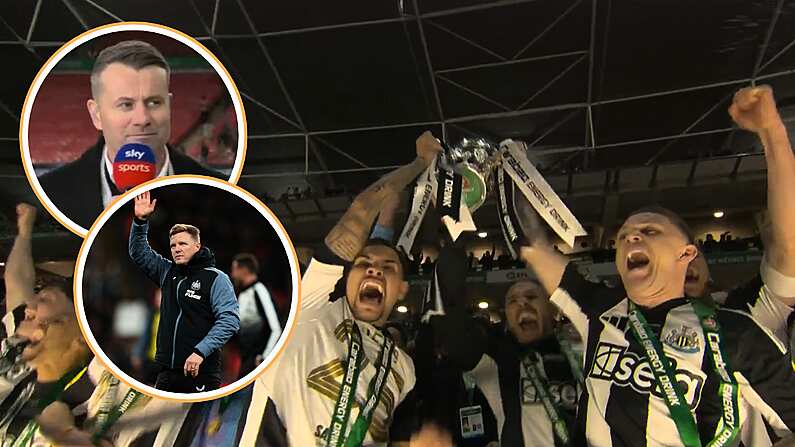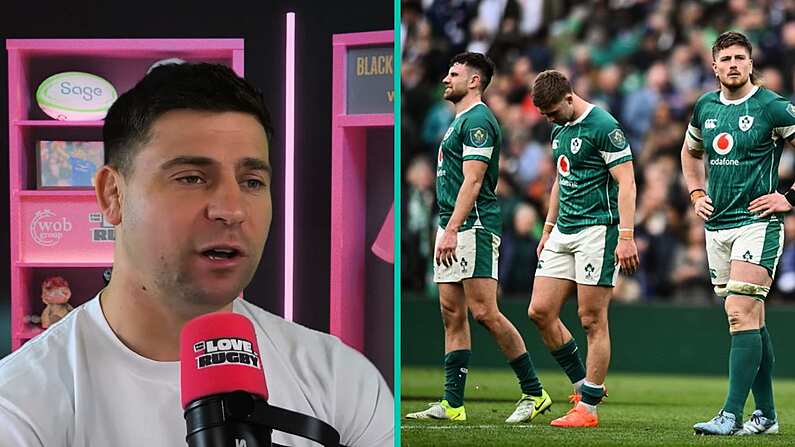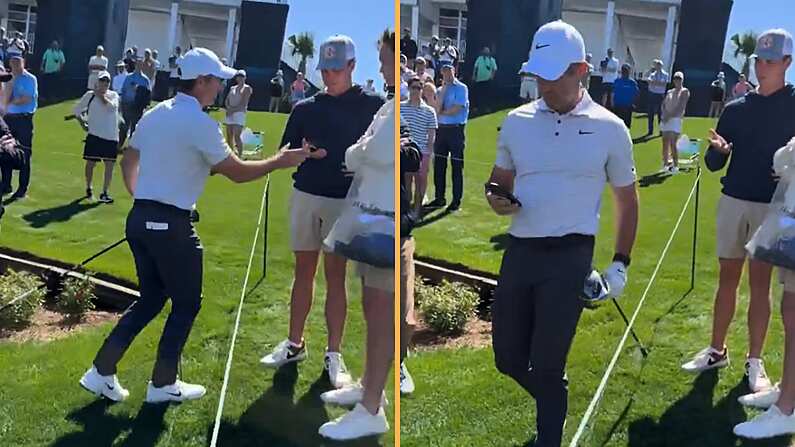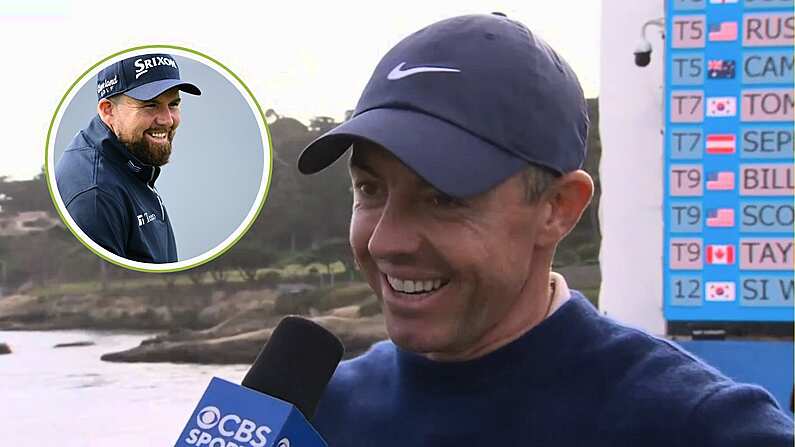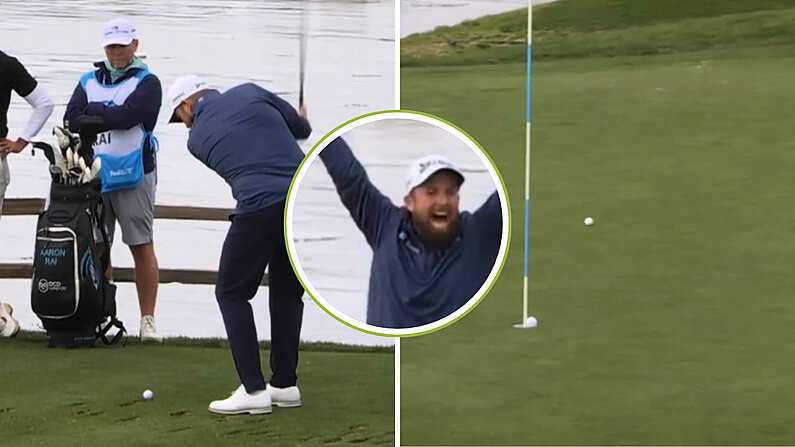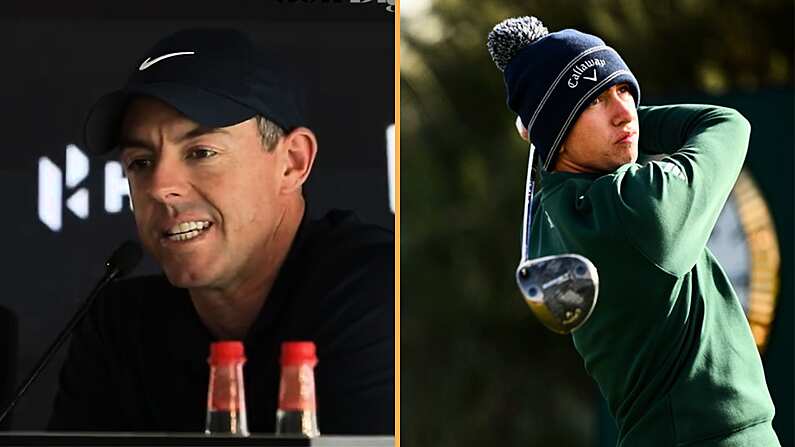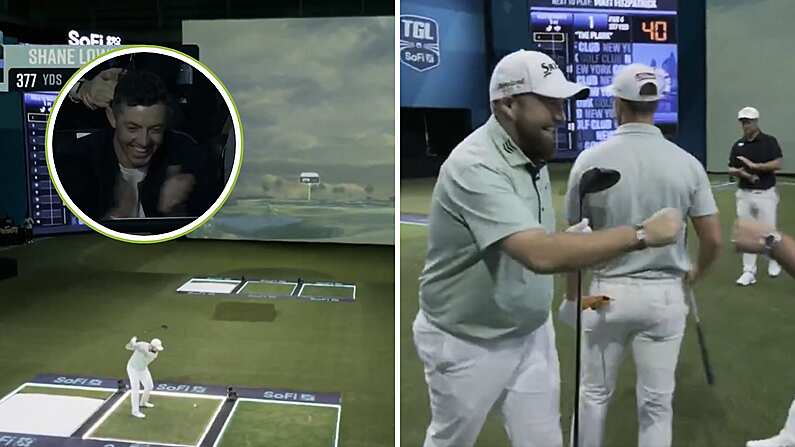The Masters was the best Major on television growing up. The splendour and familiarity of the course, the fact that it was always bathed in hazy sunshine when it was touching midnight here, the iconic back nine... it all separates the Masters from the other Majors. And then there was the fact that the same quirks and characters that appeared every year. Here are five people who made the Masters memorable in the 1990s.
Hootie Johnson
Johnson's friends argued that the caricature of him as some Colonel Blimpish-style arch-conservative was dead wrong. The Democratic African-American congressman from South Carolina, Jim Clyburn told USA Today that "His whole life has been just the opposite of what he's being portrayed. He's always come down on the side of access and equality. He's not a prejudiced person in any way. He is not deserving of this controversy."
Johnson was eventually replaced by Billy Payne in 2006. A sound chap, he is the former Vice-chairman of the Bank of America. He is also the Managing Director of Gleacher & Company, Inc., Vice Chairman of PTEK Holdings, Inc., and Vice Chairman of WebMD. People go on about women not being able to become members. On the surface, it seems quite difficult for men without at least a few directorships under their belt to get in either.
Payne is also a moderniser. That's a euphemism for a wet liberal. In 2012, he let the women in. The doors were flung open to woman from all walks of life and all income brackets. Well not exactly. Two women were let in. Former US Secretary of State Condoleeza Rice and a partner in the private equity firm Rainwater, Darla Moore. Neither were likely to go around the fairways preaching lesbian separatism and Moore was a personal friend of one Hootie Johnson.
Greg Norman
The gold standard in cocking up Majors, Norman had some horrible days on Sunday at the Masters. In 1986, he gave us the fabled 'Norman Slam', where he famously sat atop the leaderboard in all four Majors - after three rounds. The British Open was the only one he succeeded in carrying off. The defeat in that year's USPGA was horrifying, with Norman leading by a couple of stokes going into the final round, only to shoot a 76 on the final day. He might still have won it, had Bob Tway not sensationally holed an impossible bunker shot on the 72nd hole.
Unbelievably, four months later, the same thing happened again. This time in Augusta. In a playoff with Georgia native and journeyman pro Larry Mize, things were looking good for Norman. He was on the safely in the centre of the green on the 11th (the 2nd hole in the sudden death playoff) while Mize was marooned out on the right after a very poor second shot. Mize proceeded to knock in the 140ft long chip and leap around the place joyously. It was a surreal business. Norman looked both glum and stunned when he missed his putt and lost another Major. However, even at this stage, Norman was only getting into the groove as far as frittering away Majors was concerned.
After losing the 1993 USPGA in a playoff to Paul Azinger, he became only the second player ever to lose playoffs in all four Majors. The worst of all was in 1996. Norman was in the form of his life, topping the money list in 1995, and sitting at No. 1 in the world. He hit a course record opening day 63, confidently extending his lead over Friday and Saturday. He arrived at the first tee on the Sunday six shots clear. It would be too ridiculous for him to lose again. To lose from this position. It didn't help that his opponent was the ultra-composed, hyper competitive Nick Faldo. Faldo, in the words of Curtis Strange, "stared a lot of guys down. He had a way of folding his arms and looking at you as though he knew you were going to make a mistake." Faldo must have been folding his arms a lot that day, because Norman made loads of mistakes. He made bogeys like they were going out of fashion. Faldo set about playing well. Not spectacularly or breathtakingly. Just well. At the end it wasn't even close. Norman turned a six-shot lead into a five shot deficit. No bother to him. Easy. It was never in doubt.
Peter Alliss
The RTE coverage consists (or used to consists anyway) of Myles Dungan, sitting in front of a stock picture of Augusta reading out a few perfunctory lines before handing things over to the American commentators on CBS, none of whom ever say "Thank you Myles" or "Welcome to our viewers from Ireland." Also the RTE coverage generally only kicks in at the start of the back nine. (I think one year, the final group were the 14th when RTE started covering it.)
The BBC coverage on the other hand, as with Wimbledon and the British Open, is almost embarrassingly comprehensive. As always, they set up shop in the place itself and the commentators all seem genuinely delighted to be pottering about the place. The fastidious and thorough Ken Brown delights the obsessives with his correct reading of every putt. And then, they have Peter Alliss, legendary figure and all that, who's voice, like Bill McLaren and Micheal O Mhuirceartaigh, captures the essence of the sport on which he's commentating. His biggest slip-up occurred in 2004, when the greeted the birdie putt which gave the former 'Greatest Player Never To Win A Major', Phil Mickelson his first Major, by saying "And so we go to the playoff... Oh no he's won it!"
Jim Nantz
Hootie Johnson used to introduce the prize winning ceremony in the butler cabin ( I don't know could you call Hootie a butler cabin Republican, though) alongside his "good friend, Jim Nantz." The unnatural blandness of the interview didn't matter because the setting was so unique and iconic. Then, they would dispense the green jacket to that year's winner. When I was a kid, I thought a green jacket was a fairly tawdry, underwhelming prize to hand out to someone who had just won the world's biggest golf tournament, but they seemed to be chuffed with it. The previous year's winner, wearing the same jacket and having usually put up a pathetic defence of his title, would plaster on a smile and slip the jacket around the new winner.
Fred Couples
Thursday is always the slowest day at the Masters. The crowning of the winner is still four days away and you hadn't quite got the fever yet. You'd glance at the leaderboard to see who was setting the pace. 75% of the time, it was Freddie Couples.
He was the standard bet. Like, whenever you're in an Irish table quiz and a you're asked to name the author of a book you don't recognise, the smart shout is to plump for Maeve Binchy (trust me, you'll be right about 50% of the time), whenever you'd missed the first day's play at Augusta, and someone asked you who was leading, you'd have been safe enough just to have told them it was Fred Couples again. You more than likely weren't leading them astray.
He looked like a somewhat handsome, middle aged model in a Just For Men advert and had a wonderfully rhythmic, languid, stylish golf swing. Most of the time he didn't get the job done, but his losses were never really collapses. Someone else would steam through, Fred would miss the odd putt, and would leave with a big cheque but no green jacket.
In 1992, he won it out, despite a fairly violent wobble halfway through the final round, holding off the by-then ancient four time Major winner Raymond Floyd. 1998 was another most memorable year. He was in scintillating form through the opening three days and led going into the final day's play. However, a few other players were nipping at his heels. The veteran Mark O'Meara, one of those players who hung around the PGA Tour long enough to make a fair amount of money but without winning enough to be a superstar, was in touch after a brilliant round on Saturday, as was the youthful shades wearing golf nerd/loner David Duval.
In a dramatic finish, Couples weathered a Duval surge halfway through the round, thanks to a sensational eagle on the 13th (on that hole, he talked the ball down, crying out 'Oh baby yeah, oh come on') and looked to be on the verge of his second green jacket. However, in the final two holes, O'Meara, who's progress had the TV cameras had only covered fleetingly all day, holed two long putts on 17 and 18 and title was his. Instead of stepping into Jim Nantz and Hootie Johnson's lair, it was his lot to be interviewed by a scrum of dictaphone bearing reporters beside the practice green. As always, Couples was phlegmatic and composed in defeat.


